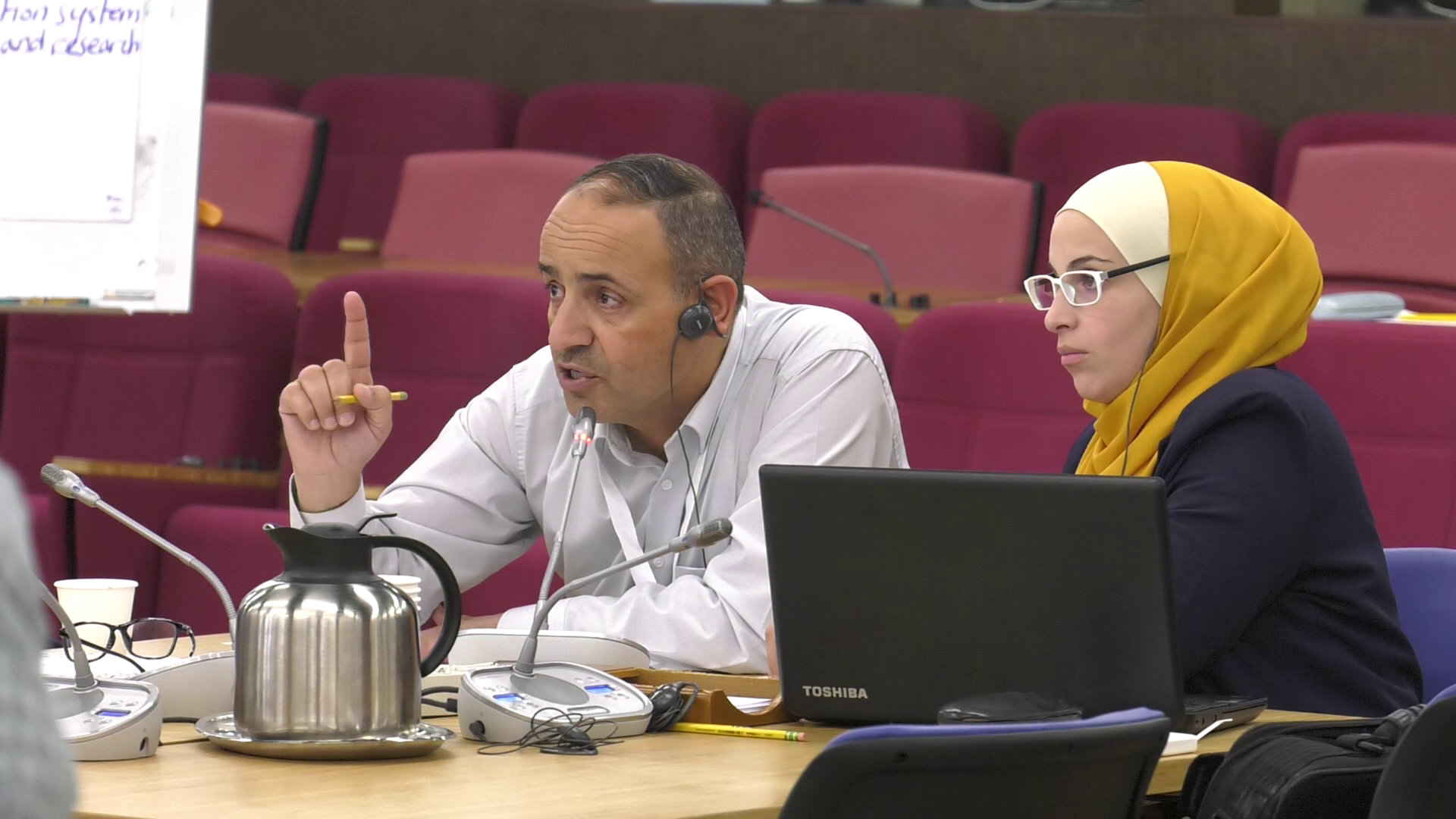Near East meeting, a precious space for open discussions around food safety
Delegates from 17 countries will gather at FAO headquarters in Rome, Italy for the 10th session of the FAO/WHO Coordinating Committee for the Near East (CCNE) from 11 to 15 November 2019.
Mrs Nayereh Sadat Piroozbakht, President of the Institute of Standards and Industrial Research of Iran, and the current Regional Coordinator, said the committee should “take into consideration the development of standards related to safety and integrity and authenticity of foods for all countries as a priority”. CCNE should promote the coordination of the countries in the region in an equitable way, “concentrating on standardization and the safety of food”, she said.
Codex committee meetings provide a precious space for open discussions around food safety trends, opportunities, challenges and emerging issues - Tunisia.
The CCNE committee gives members the chance to exchange views on Codex related subjects as well as work together on regional and international standards. This is an opportunity to “enhance and strengthen regional communication”, said the delegation of Qatar.
Lebanon expects the meeting to “address food contamination issues and determine weak points in the various elements of the food control system”, as well as tackling regional priorities and completing the work of adopting the proposed draft Regional Standard for mixed zaatar.

Delegates from Jordan at Codex workshop prior to CCNE10
Codex standards are of great importance to a country like Jordan as they become the reference when “preparing and reviewing the Jordanian Standards”, said a member of the delegation. The regional meeting for Jordan is a chance to gain experience in the procedures for preparing and amending international food standards and follow up on scientific developments in the field of food standardization.
“The newly developed regulatory framework in Tunisia requires the competent authority to conduct food safety risk assessments on the basis of the precautionary principles, transparency towards the consumer and also according to Codex requirements”, said Hichem Mechichi, a member of the Tunisian delegation. Tunisia sees CCNE as an opportunity to “encourage contacts between committee members for the mutual exchange of information on proposed regulatory initiatives and food control issues and to strengthen food control infrastructure”.
Codex the most effective forum.
“Codex is the most effective forum for the exchange of experiences, capabilities and competencies” and Egypt expects the meeting “to unite the views and help all to cooperate based on scientific evidence in food safety and quality control to reduce the problems in food consumption and trade”, said a representative of the Egyptian delegation.
Libya sees CCNE as a chance to keep up with the preparation and development of regional standards in accordance with the latest modern technologies and to help states in the establishment of technical legislation to facilitate the process of intra-regional trade between the countries of the region and the world.
Nourreddine Haridi, Algeria said the meeting “will enable us to understand food safety systems in the participating countries as well as emerging food safety issues at the global and regional level”.
Sudan looks forward to discussion on issues that preserve the trade rights of member states and concluding outstanding work on regional standards.
A delegation from Palestine will attend the meeting and is looking forward to conveying views and interest on various agenda items, and “to enhance communication with the Codex Secretariat to facilitate participation in Codex events and work”, said Nareman Odeh.
Observing the Near East
Katherine Loatman is Executive Director of the International Council of Beverages Associations. “The global non-alcoholic beverage industry is glad to see that food safety is a major theme of CCNE10. We’re looking forward to discussions on how CCNE members can implement the 2020-2025 Strategic Plan”, she said.
“This meeting brings to a close this round of regional co-ordinating committee sessions. These committees and member countries collectively set the direction and the priorities for Codex, which is why they are so important”, said Steve Wearne, UK and Vice-Chairperson of the Codex Alimentarius Commission.
Dirk Lange will represent the European Union as an observer at CCNE. The committee “helps develop clear regional positions as for example CCEURO did when it discussed and eventually prepared a CRD concerning the Statements of Principle on the role of science in the Codex decision-making process. Initiatives like these provide the regional coordinator with a robust mandate when representing the region’s position in CCEXEC”, he said. Lange also looks forward to “exchanges on initiatives to improve sustainable funding of Codex scientific advice and our endeavor to coordinate a food safety resolution at the next World Health Assembly in spring 2020”.

Mohammad Hossein Shojaee, Iran will chair CCNE10
Iran believes the dynamics of international trade and the emergence of new cross-border challenges and threats has increased interdependence between states. Food safety can be achieved only by coordinated actions across sectors, collective endeavors, mutually shared information and collaboration.
Read more
Follow the working documents for CCNE10 on the Codex website and on Twitter #CCNE10
Photo credit
Top photo shows labneh, zaatar and maamoul - products from the region (c) 123RF
Categories
- (11)
- (3)
- Animal Feed (8)
- Antimicrobial Resistance (39)
- Antimicrobial Resistance (78)
- CAC46 (15)
- Codex Texts (20)
- Codex Trust Fund (1)
- Codex60 (19)
- Contaminants (13)
- Contaminants (10)
- COVID-19 (64)
- Elections (6)
- Food Safety (126)
- Labelling (10)
- Nutrition and Labelling (5)
- Nutrition and Labelling (7)
- Observers (23)
- Pesticides (7)
- Standards (78)
- World Food Safety Day (154)


